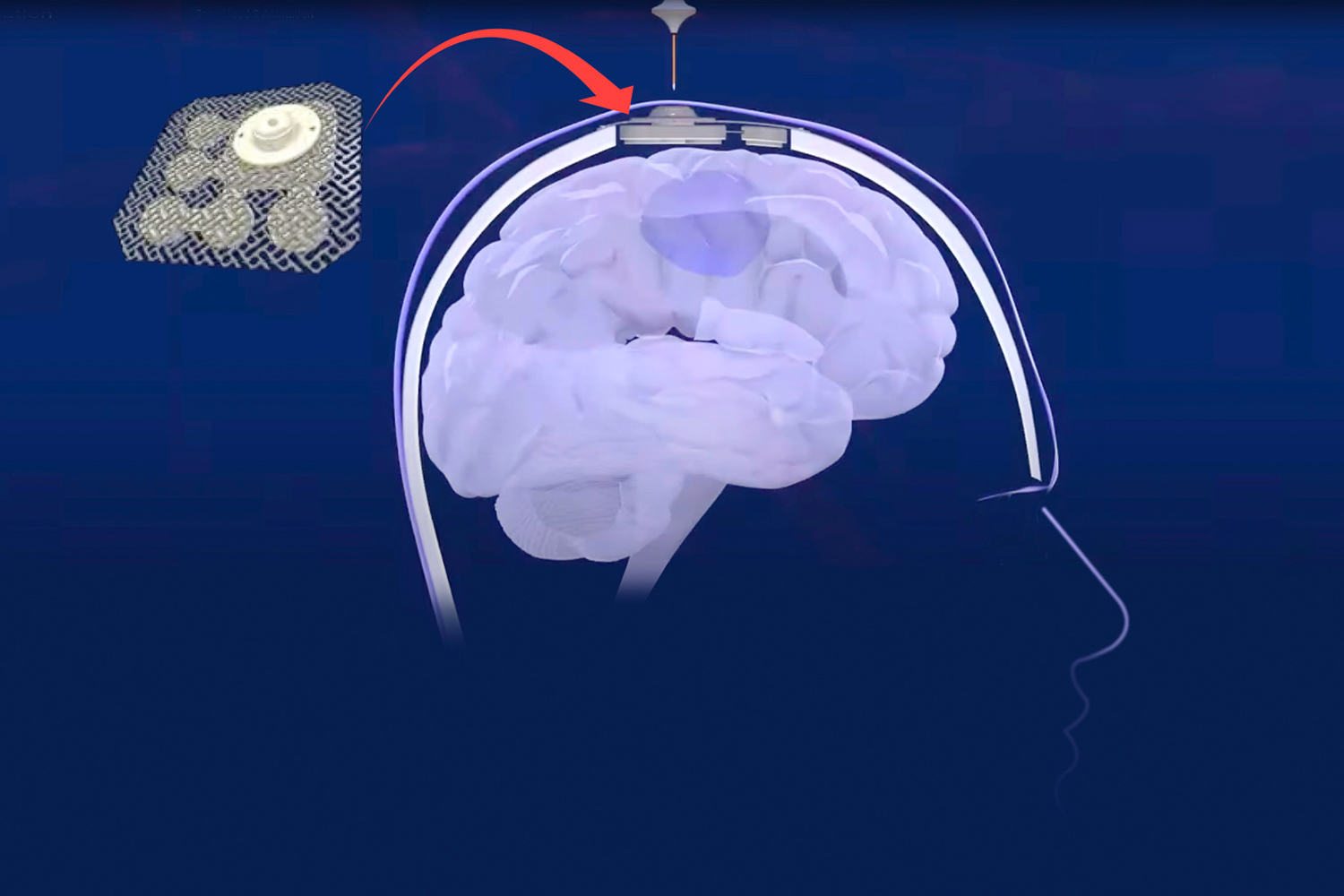EFFORTS TO TREAT CANCER in the brain are hampered by the blood-brain barrier, a network of closely spaced cells that protects our brains from harmful substances in the bloodstream but also blocks many commonly used chemotherapies from getting to the brain. But researchers are investigating a new implantable device that emits ultrasound waves to temporarily open the barrier and allow potent chemotherapies to reach brain tumors.
During surgery to remove a tumor, doctors implant the device in the opening where they remove part of the skull to access the brain. Prior to receiving chemotherapy, patients receive an injection of a fluid infused with microbubbles. Once the implanted device is activated, the ultrasound waves excite the bubbles as they pass through blood vessels in the brain, forcing space between cells that compose the blood-brain barrier and allowing treatment to pass through.
Researchers tested the device with the chemotherapy drug paclitaxel in 17 patients with recurrent glioblastoma. The results, published May 2023 in Lancet Oncology, showed that treatment with this method delivered paclitaxel to the targeted brain tissue. “This is the first time that it has been successfully demonstrated that these drugs have been increased in the brain,” says Adam M. Sonabend, a neurosurgeon at Northwestern Medicine in Chicago and an author of the study.
Sonabend says the study showed the opening in the barrier closes about an hour after the device is activated, which gives a short window for patients to receive chemotherapy. But that window could make a large difference for patients, particularly since many powerful chemotherapy agents, including paclitaxel, are unable to penetrate the blood-brain barrier. “It opens opportunities for the 95% of drugs that are currently not being considered for brain tumors,” Sonabend says.
A phase II trial will test the device in a larger group and evaluate its effects on cancer and survival.
Cancer Today magazine is free to cancer patients, survivors and caregivers who live in the U.S. Subscribe here to receive four issues per year.





